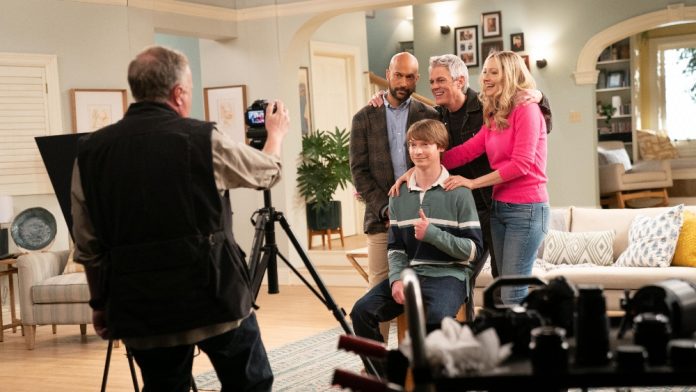With so much content and creativity to binge on, it’s a wonder that television needs to fall back on the reimagining or retelling of a drama, sitcom, or series; put more succinctly, a reboot. This year alone we will see no less than 20 beloved programs making a comeback, some with returning cast members to bring back die-hard fans, others with a souped-up modernized storyline to engage new viewers.
For Creator/Showrunner/Executive Producer Steven Levitan, this seemed like fertile ground to mine, and he used his clever mind to turn the concept into Hulu’s new comedy series Reboot. The laugh-out-loud show fits right in Levitan’s wheelhouse, satirizing the very format that has nurtured his award-winning career, which includes serving as co-creator and showrunner on Modern Family, which brought him five Emmys and three WGA Awards. Levitan also created Just Shoot Me! and Greg the Bunny, and served as a writer and executive producer on The Larry Sanders Show, Wings, and the Emmy-winning series Frasier, which is about to get its own reboot on Paramount+.
Reboot follows the revival of the fictional 2000s family sitcom Step Right Up, and it features a killer cast including Keegan-Michael Key, Judy Greer, Johnny Knoxville, and Calum Worthy as the dysfunctional quartet at the center of the show. The show-within-the-show is written by a father/daughter team resolving their own issues, played by Paul Reiser and Rachel Bloom, while Krista Marie Yu rounds out the cast as a novice Hulu executive who’s just getting her feet wet in the world of television.
Below the Line spoke with Steven Levitan about the inspiration for Reboot, why he thought the American sitcom was ripe for a ribbing, his overall love of television, and what goes into making people laugh, which is the motivation that fuels his career. We also discussed his casting choices and what makes comedy so damn hard. Levitan also reveals several homages to a beloved ’60s sitcom and what goes on behind closed doors in a writers’ room.
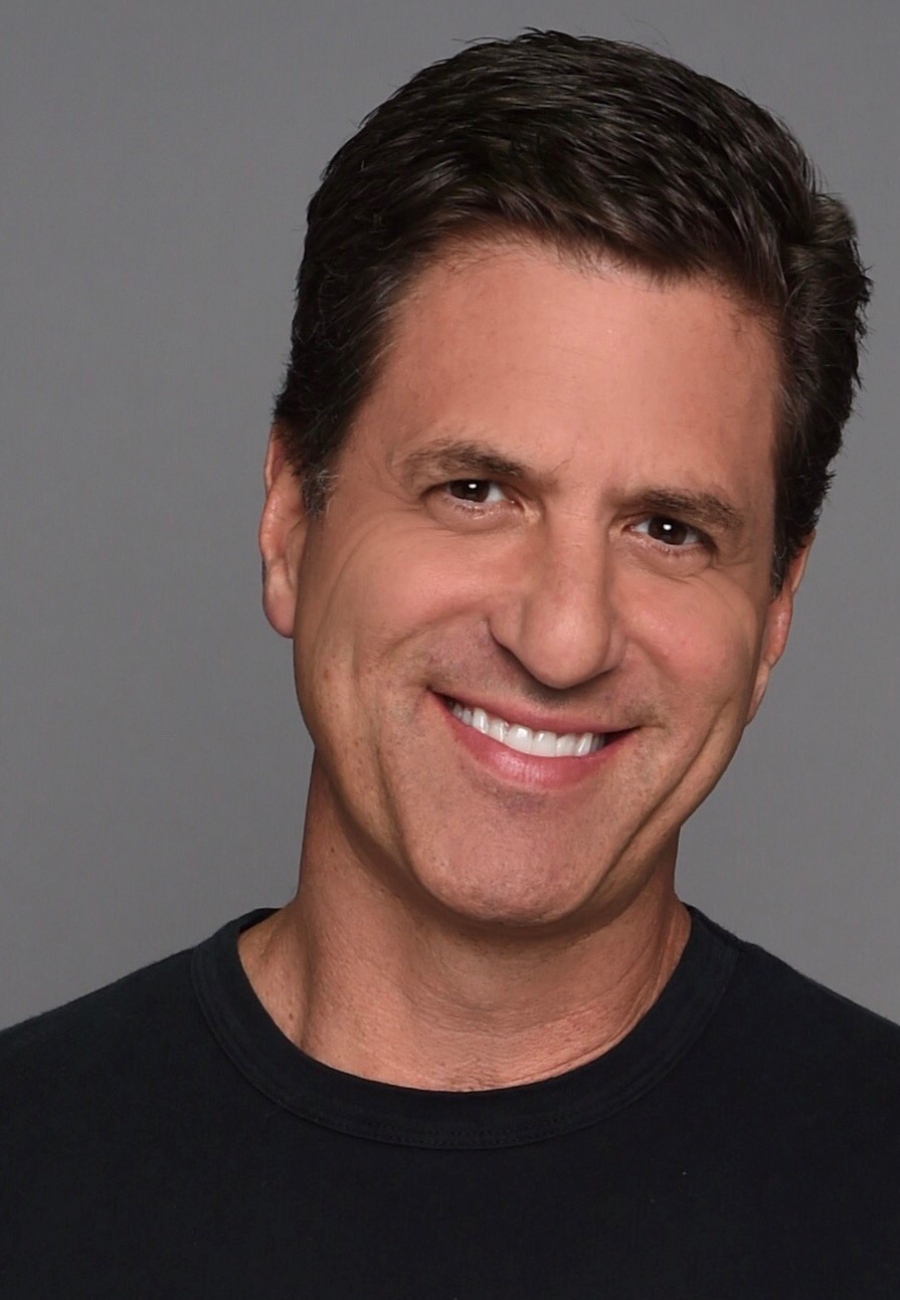
Below the Line: To begin, what inspired the idea to make Reboot?
Steven Levitan: Well, I was working at Modern Family, and I heard about the whole Roseanne debacle, like we all did at that time, and I just remember thinking to myself, ‘that must be a fascinating place to be today. You know, on that stage, being such a loaded situation with such eccentric people.’ [So] I started thinking about reboots and those actors coming back after all [those years and] making that decision to come back and assume those characters and get into it all [again] and do all the press and everything involved with it. And then for that to happen, that must have been just really difficult on them all.
BTL: How did you turn that inspiration into the storyline for Reboot?
Levitan: It started to feel like a show to me. That, ‘oh, this era of reboots and people coming back after thinking their lives would go one way and you’re picking up with old relationships. In a weird way, it’s like suddenly going back to high school. That all sounded like a good [idea] for a show.
BTL: Well, how do you feel about reboots in general? Ironically, Frasier, which you executive produced, has a reboot/revival in the works.
Levitan: Listen, I try not to judge other people’s work. I leave that up to the critics. If there’s a good reason to do it or if there’s some new ground to cover, and everybody wants to, and the audience wants it, you know, great. Then, you know, I [say] more power to that. You know, it’s funny, I’ve read a couple articles about our show or reviews or whatever, and you know, one or two people mentioned, like, ‘I wish they had taken more of a stand for [or] against reboots.’ And I’m like, that’s not really the purpose of my show, to make a big statement about [whether] reboots are good or reboots are bad. It really is more of, ‘isn’t this an interesting situation to put larger-than-life characters through?’
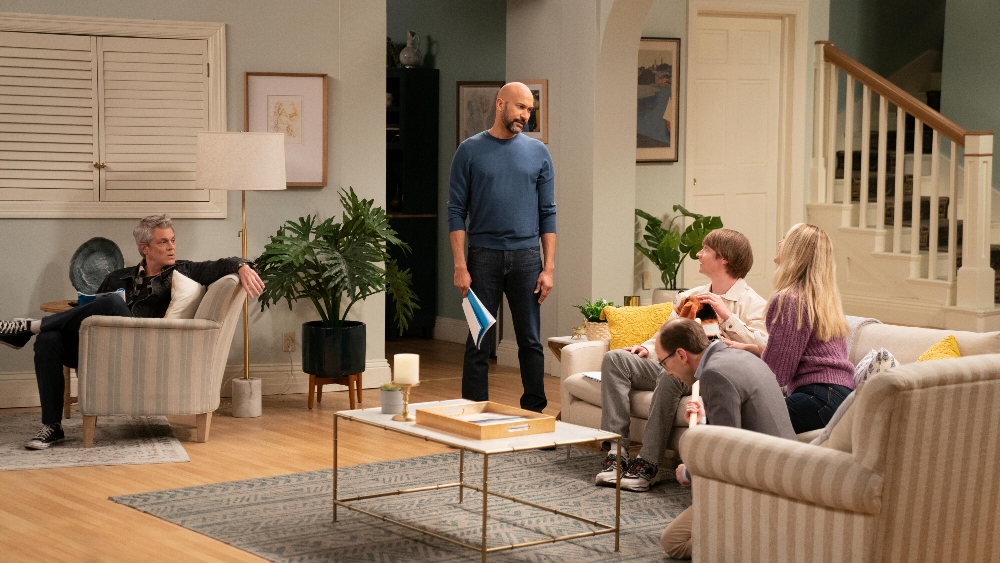
BTL: Also, some of the articles are suggesting that the rebooted sitcom in your show is a mash-up. What series would you say you thought about when writing the story of Step Right Up?
Levitan: Those that were on my mind when I was creating the fictional multi-cam show, the Step Right Up part of it, [which is] the fake show within the show, there was like, a little bit of My Two Dads. I guess there’s a little bit of Two and a Half Men. There’s also a little bit of Wings, a show that I worked on where I just basically reverse-engineered a show from the cast, from the adults that I wanted in the present day.
I knew I wanted these two guys and a woman who had been sort of in a triangle on that show. And then a kid who had grown up. So it was pretty simple reverse-engineering from there.
BTL: And let’s talk about this cast. You serve as showrunner, so I imagine you were involved with all the decisions, so what made you think of folks like Paul Reiser, Keegan-Michael Key, Judy Greer, and Johnny Knoxville?
Levitan: Oh, yeah ultimately all the casting is, I guess, my decision. [laughs] There were different reasons for everybody, but the first and foremost was, everybody needed to be funny. I’ve seen the difference when you have people who just inherently know how to make a moment funny and those who are kind of struggling to understand that. Keegan was the first person that I thought of for this, and the first person I talked to years before about it. He just seemed like a natural, like sort of that pompous character because he didn’t look like a lot of the characters playing those pompous roles. Back then, it felt a little bit interesting and a little bit more, I guess, current. But he’s just one of the funniest people I know and a smart person and a good person. Everybody also has to pass the “no asshole” test.
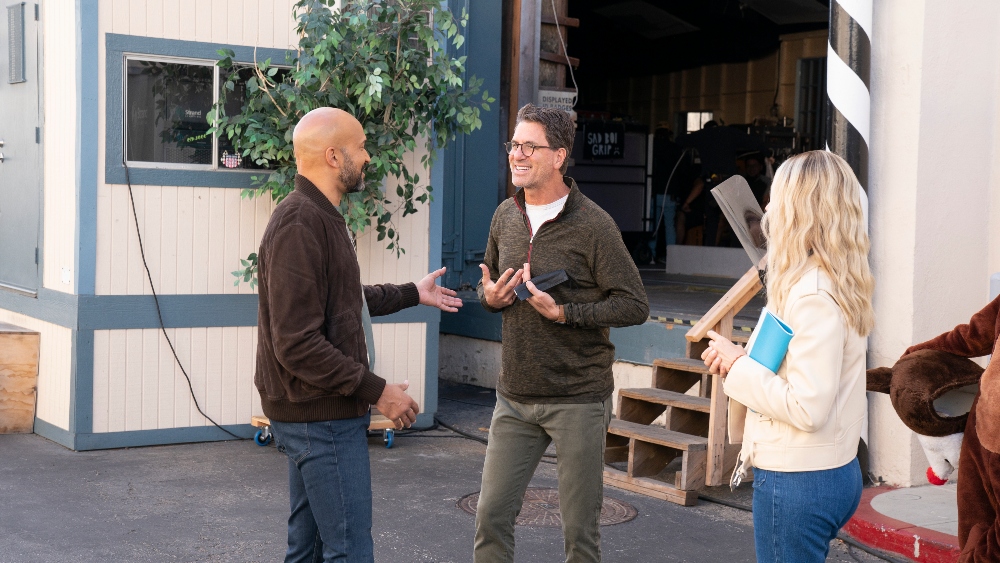
BTL: Is that a real thing with you?
Levitan: Yeah, it is. I had my taste of shows that had assholes and life is definitely too short. I always meet with people and talk to people and if I’ve heard bad things, I’ll feel that out and make sure that everybody knows that this is gonna be a happy set. And if I get the sense that someone will never be happy anywhere, then they’re crossed off the list. Everybody else, it was just like, they’re funny.
Johnny Knoxville felt fresh [in a] way because we hadn’t seen him do anything like this before. You know, Judy Greer just knows how to wring every ounce of comedy out of a moment. Rachel Bloom is smart and funny and grounded. She just couldn’t have been more the type of person that was in my head for that role at the very beginning; the fact that she’s a writer herself, you know, and lives in Silver Lake and whatever, helps. She is, in some ways, Hannah.
Paul Reiser brings both the rhythms that I thought Gordon should have, but also the warmth and the comic chops. He adds a layer of humanity and warmth to this character that is just so important because otherwise, he could be a cartoon character, and Paul won’t allow that to happen. Calum Worthy was just balls-out funny and the same with Krista Marie Yu. So I just feel very lucky. [I could] go on and on [about the casting] as we have populated this world with really brilliant people.
BTL: What I love about this is that we’re getting to really see what goes on behind the scenes on a show, including the writer’s room. Is it similar at all to the environment on this show and how you hash things out with other writers?
Levitan: A lot of it [is] in the room and it’s versions of what you’re seeing there (on the show). Although we don’t have the extremes the way that that room does. But we do have a lot of moments of that, [with] younger writers saying, ‘Oh, we can’t really say that.’ Or older writers offending somebody or defending a joke and thinking that the younger writers are being too precious. That dynamic does exist in a lot of writers’ rooms. And there were certainly moments of that here in ours. Whenever those moments did happen, we tried to just take notes and recreate it onscreen.
BTL: Can you give me an example of that?
Levitan: The episode where they’re talking about “scissoring” in the writers’ room, for example. When that term came up, one of the younger female writers said that line, which is in the scene — “that doesn’t really exist in real life. That is a construct of heterosexual porn designed for the pleasure of straight men.” And I, for one thought that that person was incorrect, and actually, we made a couple calls to gay women that we knew and got some answers, but immediately, I knew this is exactly the kind of stuff that needs to be in the scene. So we’re constantly doing that. There’s a good amount of room stuff; a lot of story-breaking happens in the room. You know, beating out the beats of stories happens there. And then, you know, notes and rewrites tend to happen in the room, but because of time constraints or whatever, I would do it also on my own. So it was a combination of things.
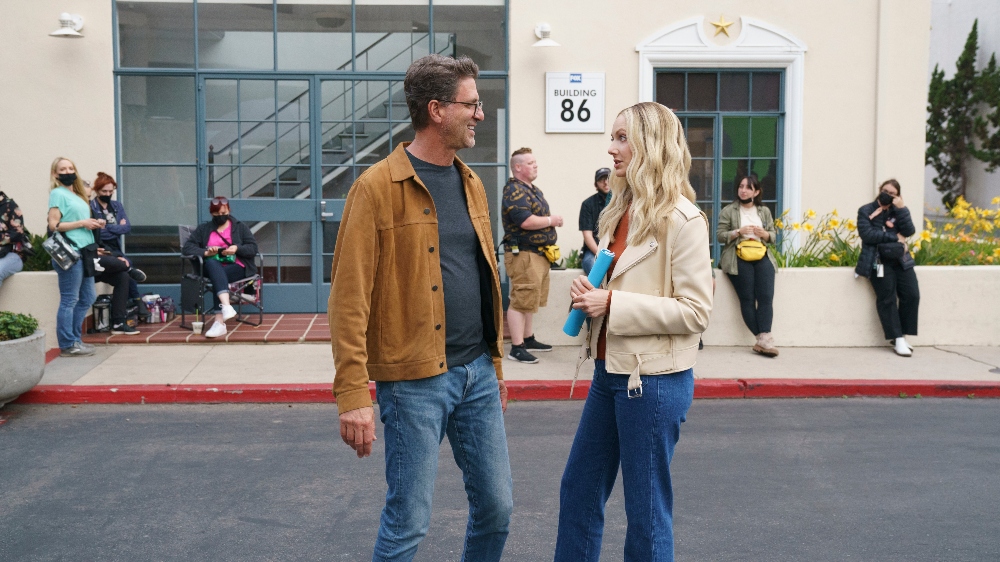
BTL: What is it about comedy that makes it so hard even though it seems easy for you?
Levitan: Well, it is hard. The thing about comedy is [that] you’re leading with your chin a bit. You’re announcing to your audience that I’m gonna make you laugh and I’m gonna try to make you laugh and this moment is designed to make you laugh. And when it works, it’s seamless and it’s wonderful and the audience laughs and everybody feels good. There’s nothing better than that. And when it doesn’t work, you look like an idiot. I do feel like it’s a bit more of a tight-wire act to actually try to elicit laughs from an audience, as opposed to say, making amusing observations or just being clever for clever’s sake. There’s room for all of it. I just [want] to, as Gordon (Reiser) says in that speech in the scene in the restaurant, bring joy and laughter into some people’s shit days, and what can be better than that? What could be more honorable than trying to do that?
BTL: I want to get inside your head for one second. There is a laugh-out-loud moment where we discover Reboot cast member Timberly (Alyah Chanelle Scott) was the star of a movie called Fuck Buddy Mountain. Where did that title come from?!
Levitan: Well, Fuck Buddy Mountain came from a show on HBO called Fuck Boy Island (FBoy Island). Originally, I had just written that one thinking, let’s just use the real one, but we were told we couldn’t use it. So we pitched on that for a glorious 10 or 15 minutes. And out came Fuck Buddy Mountain.
BTL: Is the show actually shot on a working studio lot or did you recreate it?
Levitan: It’s the Fox lot where we are literally on the same sound stage where we shot Modern Family. Our offices, the writer’s offices, the Step Right Up writer’s offices, are the same offices I was in for Modern Family, so there’s a lot of history for me. We wanted everything to feel as real as possible. When we created the writer’s room on the sound stage, we made sure to pay a lot of attention to the little details, things that were on the table, and little tributes to moments. I’ve never talked about this, but like, for example, there’s a punching bag on the wall of the writer’s room and that, for me, is a little nod to The Dick Dyke Show because there was a punching bag in their writer’s room.
BTL: Why did you model the writer’s room after The Dick Van Dyke Show?
Levitan: I was a giant fan of that show. I grew up on that show. I always remembered it and so when they were looking for ways to make it a little bit more interesting, [I said], ‘let’s put up a punching bag, and a dart board, like on The Dick Van Dyke Show.’
BTL: What are some of your favorite departments to sort of liaise with?
Levitan: I feel more qualified to deal with things like sets than I do with wardrobe. I might have a specific thing with wardrobe or I might have an opinion once I see something, but I am not a fashion icon and I don’t claim to be. I just know when something looks real to me or if it looks flattering, and that’s about it. I got married recently and my wife has quite the eye for fashion and I really realized how I don’t [laughs] the more time I spend with her. So I tend to stay out of that. For example, Bree’s (Greer) outfits, and what that character [would] wear? I tend to not get into that kind of thing as much as I do care about a set because I want [it] to be the right scale and I want to feel [out] what’s gonna be conducive to shooting and the technical aspect of it as a director.
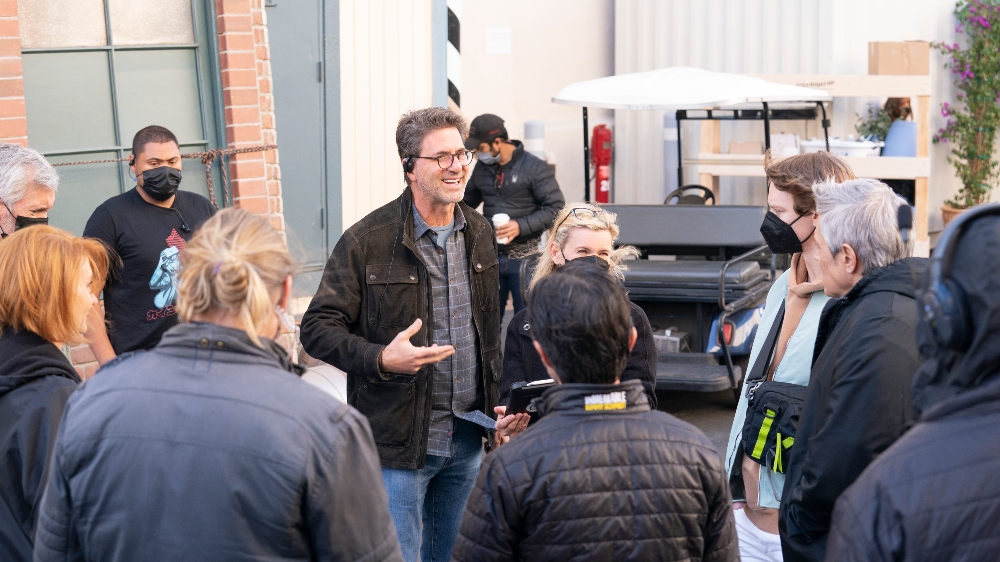
BTL: I’m sure you were involved in bringing the craft service table up to date!
Levitan: There was a moment that I came down and we were shooting a scene at the craft service table, and they had moved it over by the multi-cam set and I said, ‘Why is it over here? Like, right in front of the set?’ And they said it would be a better backdrop to the scene, it’ll look better. I said, ‘no, but it would never be there.’ And much to everybody’s chagrin, I made ’em move it back to this dark corner where it always is. [chuckles] And I said, ‘this has to be real. It has to feel like it is in real life. We can’t take these liberties.’
BTL: Did you take liberties with the donuts with fake bacon on top? You’re actually making fun of that in many ways.
Levitan: Oh, yeah, there are all sorts of things that show up on a set in a craft service area that you don’t really understand what is going on there. Yeah, everything is gluten-free now, etc. [But] the maple bacon donuts that we had on set are actually the real ones and are as delicious as one could imagine.
BTL: So what would you say is the most rewarding thing about poking fun at the format that made you so successful?
Levitan: I have a deep knowledge of it after all these years. I’ve observed a lot and filed a lot of that away, and it’s nice to call upon all that right now. Modern Family was a look at my family life along with all the other writers’ family lives. That’s what we did. We would go home and mine stories out of what was going on in our home lives. This is a chance for me to both remember my career in this business and call upon memories of that, and also to maybe say a few things that I had to say about it.
BTL: Are you, in a way, getting back at the bad parts of the TV business?
Levitan: That was never my intention. I tried to be good-natured about it because I do realize that this business is very absurd at times, and I have, of course, been part of that absurdity. There are times where I’ve met some bad players and I’m not afraid to point out those bad players. But by and large, everybody means well. By and large, we’re dealing with human beings who are trying to get ahead and do good work, and most of the people came into this business because they do have a love of television. They could have maybe made more money or had a steadier income by doing something else, but they love this business for all of its idiosyncrasies and quirks. It’s a business that looks so glamorous and it is at times, but it’s also a business that is difficult and hard and not glamorous for the vast majority of the people who work in it, and yet they still come and bring their all every day.
It never ceases to amaze me to watch people, you know, we’re on some faraway location; it’s very late at night; it’s cold; it’s whatever, and you know, we shoot our last shot and I’m tired and I just wanna go home. And I look over and I see these guys who have to load up [the] entire production onto these trucks, drive them back to the studio, and then drive all the way home, which is sometimes very far away. It’s never lost on me that there are all these hardworking people who just have this fantastic attitude every day. This has never meant to be, like, a takedown of television. This was always intended to be a love letter, or maybe a friendly roast.
Episode 7 of Reboot debuts Tuesday on Hulu, with the Season 1 finale slated for Oct. 25.


